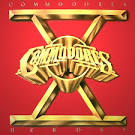
services
purpose

The Commodores are an American funk/soul band, which was at its peak in the late 1970s through the mid 1980s. The members of the group met as mostly freshmen at Tuskegee Institute (now Tuskegee University) in 1968, and signed with Motown in November 1972, having first caught the public eye opening for The Jackson 5while on tour.
The group's most successful period was in the late 1970s and early 1980s when Lionel Richie was co-lead singer. The band's biggest hit singles are ballads such as "Easy", "Three Times a Lady", and "Nightshift"; andfunky dance hits which include "Brick House", "Fancy Dancer", "Lady (You Bring Me Up)", and "Too Hot ta Trot". However it was in 1986 that the Commodores won their first Grammy for the song "Nightshift".
The Commodores originally came together from two former groups, the Mystics and the Jays, but wanted to change the name. Together, a six-man band was created from which the notable individuals were Lionel Richie,Thomas McClary, and William King from the Mystics; Andre Callahan, Michael Gilbert, and Milan Williams were from the Jays. To choose a new name, William "WAK" King opened a dictionary and randomly picked a word. "We lucked out", he remarked with a laugh when telling this story to People magazine. "We almost became 'The Commodes!'"[citation needed]
"Machine Gun", the instrumental title track from the band's debut album, became a staple at American sporting events,[citation needed] and is similarly featured in many films, including Boogie Nights and Looking for Mr. Goodbar. It reached No. 22 on the Billboard Hot 100 in 1975. Another instrumental, "Cebu" (named after anisland in the Philippines), later became a staple[by whom?] in the Quiet storm format. Three albums released in 1975 and 1976 (Caught in the Act, Movin' On, and Hot On The Tracks) are considered[by whom?] the peak of their harder funk period. After those recordings the group started to move towards a softer sound. That move was hinted at in their 1976 Top Ten hits "Sweet Love" and "Just to Be Close to You". In 1977 the Commodores released "Easy", which became the group's biggest hit yet, reaching No. 4 in the U.S., followed by "Brick House", also top 5, both from their albumThe Commodores, as was "Zoom". The group reached No. 1 in 1978 with "Three Times a Lady". In 1979 the Commodores scored another top-five ballad, "Sail On", before reaching the top of the charts once again with another ballad, "Still". In 1981 they released two top-ten hits with "Oh No" (No. 4) and their first upbeat single in almost five years, "Lady (You Bring Me Up)" (No. 8).
The band originated while its members attended Tuskegee University in Alabama. After winning the university's annual freshman talent contest, they played at fraternity parties as well as a weekend gig at the Black Forest Inn, one of a few clubs in Tuskegee that catered to college students. They performed mostly cover tunes and some original songs with their first singer, James Ingram (not the famous solo artist). Ingram, older than the rest of the band, left to serve active duty inVietnam, and was later replaced by Walter "Clyde" Orange, who would write or co-write many of their hit tunes. Lionel Richie and Orange alternated as lead singers. (Orange was the lead singer on the Top 10 hits "Brick House" and "Nightshift".)
The Commodores made a brief appearance in the 1978 film Thank God It's Friday. They performed the song "Too Hot ta Trot" during the dance contest; the songs "Brick House" and "Easy" were also played during the movie.
In 1982, Lionel Richie left to pursue a solo career. A transition that was smooth but slow, Richie's departure was evident after it was mentioned to the band why his distinct sound would ever be a part of The Commodores; Skyler Jett replaced Richie as co-lead singer.
Over time, several founding members left. McClary left in 1983 (shortly after Richie) to pursue a solo career and to develop a gospel music company. McClary was replaced by guitarist-vocalist Sheldon Reynolds. LaPread left in 1986 and moved to Auckland, New Zealand, and Reynolds departed for Earth, Wind & Fire in 1987, which prompted trumpeter William "WAK" King to take over primary guitar duties for live performances. Keyboardist Milan Williams exited the band in 1989. The group also gradually abandoned its funk roots and moved into the more commercial pop arena. In 1984 former Heatwave singer James Dean "J.D." Nicholas assumed co-lead vocal duties with drummer Walter Orange. The band remained hitless until 1985 when their final Motown album, Nightshift, produced by Dennis Lambert—all prior albums were produced by James Anthony Carmichael)—delivered the Grammy Award-winning title track "Nightshift" (No. 3 in the U.S.). It was a tribute toMarvin Gaye and Jackie Wilson. In 2010 a new version was recorded, dedicated to Michael Jackson.[1] The Commodores were on a European tour performing at Wembley Arena, London, on June 25, 2009, when they walked off the stage after they were told that Michael Jackson had died. Initially the band thought it was a hoax. However, back in their dressing rooms they received confirmation and broke down in tears. The next night in Birmingham's NIA Arena, J.D. Nicholas added Jackson's name into the lyrics of the song, and thenceforth the Commodores have mentioned Jackson and other deceased R&B singers. Thus came the inspiration upon the one-year anniversary of Jackson's death, to re-record, with new lyrics, the hit song "Nightshift" as a tribute. "Nightshift" won The Commodores their first Grammy for Best R&B Performance by a Duo or Group With Vocals in 1985.